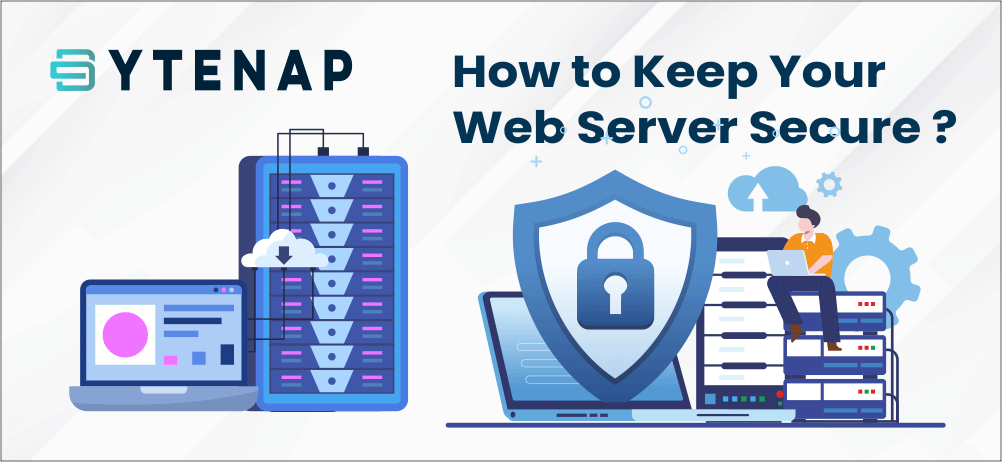In this article, we will be discussing how to keep your web server secure and three malicious risks to stay secure in 2021. So let’s get started.
In the present-day security environments, anybody is a possible target for an attack and sadly for most, the next malware is just nearby the corner.
The cyberattacks can be caused by a bad password, lack of firewall or antivirus, or open ports. The high volume of cyberattacks is often intended to target particular firms and industries.
Now, it has quite become quite essential to bring in a complete security strategy to secure proprietary data and avoid web server security compromise. The key findings to any strong security strategy are to understand the primary risks and vulnerabilities that could jeopardize the website integrity.
The most widespread risk in security in 2020 are DoS attacks, Code Injection, and Cross-Site Scripting.
Protect Your Web Server Against These Threats In 2021
Denial-of-Service (DoS) or Distributed-Denial-of-Service Attacks (DDoS)
In DDoS or DoS attacks, your server will be overflown with junk data or false requests. This type of attack forces the server to try to authorize it. This kind of attack uses server resources and the sites unavailable.
This kind of attack can down a website without the need to obtain internal access. The worst part of this is sad, there is no method to avoid these attacks from happening or foresee if you will be a target.
You could lose your potential customers if your website faces the downtime.
To know about the causes of downtime, read this post on “The Most Common Causes of Website Downtime“.
Code Injection
Code Injection is while a vulnerability is exploited by a threat actor and your site or application is modified for their own intent. Generally, this leads to customers using your site or application and becoming endangered themselves.
Cross-Site Scripting
Cross-site scripting or XSS is a web application vulnerability that enables hackers to transmit malicious or misleading requests to your browser.
Among the other kinds of attack your business could meet, a layered defense is vital to safeguard all assets and can be accessed via your web server.
Now let’s move ahead to see how to make your web server secure.
Key Steps to Make Your Web Server Secure
Make Use of Encrypted Information Transfer
Avoid using insecure protocols like telnet or plain FTP. Rather, you should use secure protocols like FTPs or sFTP, SSH, and HTTPS. If you are using SSH, one tip is to alter the SSH port’s default value 22, this will help you against brute force attacks scanning for vulnerable servers over the internet. Though, it doesn’t guarantee a fix against such attacks, however, can highly minimize the chances of undergoing a brute force attack.
A webserver firewall will filter all the incoming and outgoing data packets. Hence, it will ensure all the data and info going back and forth is encrypted from third-party interference. And this is utterly crucial if your website includes online transactions.
Moreover, you can have an SSL certificate installed on your website to ensure that all the transactions among you and your clients are safe and secure. SSL certificates are the standard for online security, encrypting online transactions to avoid data exposure to malicious actors.
Protect Web Server With Complex Passwords
Easy passwords like “admin123”, “12345678”, “qwertyuiop” or a dictionary word are easy to guess and crack. Strong passwords are basic and efficient and just as crucial as using secure and safe communication protocols.
Consider Linux as an OS for Your Web Server
Learning a new OS is something that takes much effort. Hence, most of the firms varying on their resources and size require either a specialist or external help to continue operating the Windows.
Though Windows tends to be a widely popular operating system, the majority of the world’s web server is powered by Apache. As being open-source and having an active community of users, it lets any user review the source code and offer fixes and updates for possible security flaws.
Also Read: How to Estimate Website Bandwidth Needs?
Schedule the Updates and Keep Backups Updated
Make sure that you keep the real-time backups of databases, applications, and all the data up to date. Having a backup will be helpful in case of a catastrophic system failure.
Restrict Access to Servers and Directories
You can control risk and limit potential damages by limiting access to the servers and directories to just those who require it. Taking additional measures to avoid mismanagement or third-party unauthorized access on a physical level likewise means minimal potential issues.
Pick Dedicated Servers for Top-Notch Protection
By picking a dedicated server you will get a particular level of security for your data. With a dedicated server plan, you get your own dedicated server unlike VPS hosting or shared hosting. The dedicated server ensures high server performance, offers physical security, and can be easily configured based on the website needs.
ByteNAP’s Dedicated Server Hosting India plans are tailor-made to meet the needs of heavy traffic business websites and applications and offer the users an experience worth enjoying.








